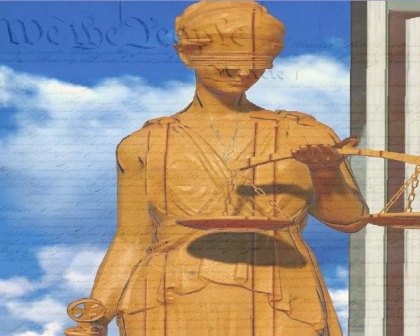What is the emoluments clause?

Trump, a real estate mogul and television reality star, was sworn into office Friday, Jan. 20. By Monday, Citizens for Responsibility and Ethics in Washington filed a lawsuit in federal court claiming that the president's business interests “are creating countless conflicts of interest, as well as unprecedented influence by foreign governments, and have resulted and will further result in numerous violations of Article I, Section 9, Clause 8 of the United States Constitution, the ‘foreign emoluments clause.’”
The lawsuit seeks “declaratory relief determining the meaning of the foreign emoluments clause and stating that defendant’s present and future conduct violates this provision, as well as injunctive relief ordering defendant to refrain from violating the foreign emoluments clause."
In a news release, Norman Eisen, chairman of the organization's board of directors, said, “President Trump is the first president in decades not to release his tax returns. Seventy-five percent of Americans want to see the president’s tax returns and so do we. We will seek those in discovery in this case in order to establish the details of the emoluments clause violations here.”
Questioned about the case before television cameras on Jan. 23, Trump said the complaint was without merit.
So what is the emoluments clause and why is it in the U.S. Constitution? Here is the rundown, along with sources and links for further study:
Fears of the founders: As they were forming the government, the founders worried about foreign influence. Alexander Hamilton put it this way: "The weak side of republican government is the danger of foreign influence." [See Miracle at Philadelphia, The Story of the Constitutional Convention, May to September 1787, by Catherine Drinker Bowen (Back Bay Books; 1966).
“The United States was a new government, and one that was vulnerable to manipulation by the great and wealthy world powers (which then, as now, included Russia),” wrote Eisen, along with Richard Painter and Laurence H. Tribe in an article on the Brookings Institution website. “One common tactic that foreign sovereigns and their agents used to influence our officials was to give them gifts, money, and other things of value.”
Eisen, a fellow at Brookings, is a former chief White House ethics lawyer. So is Painter, now a University of Minnesota law professor. Tribe is a professor of constitutional law at Harvard University. Eisen, Painter and Tribe are among the list of high-profile lawyers involved in filing the complaint.
What the Constitution says: The U.S. Constitution prohibits office holders from using their position for personal profit. Article I, Section 9, says this: “No title of nobility shall be granted by the United States: And no person holding any office of profit or trust under them, shall, without the consent of the Congress, accept of any present, emolument, office or title of any kind whatever from any king, prince or foreign state.”
Interpreting the clause: A U.S. Defense Department paper explains the clause this way: “'Emoluments' is defined as 'the profit arising from office or employment; that which is received as a compensation for services, or which is annexed to the possession of office as salary, fees, and perquisites; advantage; gain, public or private,' except as authorized by Congress. Thus, for example, compensation in the form of honoraria, travel expenses, household goods shipments at employer’s expense, housing allowances, and gifts from a foreign state, except as authorized by Congress, are considered emoluments. As a result, most federal personnel, including retired military personnel, cannot accept outside compensated employment with, or receive gifts in excess of the minimal value from, a foreign government.'”
Why it is significant: The lawsuit says that the theory of the emoluments clause is that “a federal officeholder who receives something of value from a foreign power can be imperceptibly induced to compromise what the Constitution insists be his or her exclusive loyalty: the best interest of the United States of America. And rather than guard against such corruption by punishing it after-the-fact, the framers concluded that the proper solution was to write a strict rule into the Constitution itself, thereby ensuring that shifting political imperatives and incentives never undo this vital safeguard of freedom.”
To know more:
- Brookings Institution, The Emoluments Clause: Its text, meaning and application to Donald J. Trump, Dec. 16, 2016, by Norman L. Eisen, Richard Painter and Laurence H. Tribe.
- CNN: Does ethics lawsuit against Trump have a chance?
- Sen. Ben Cardin, D-Maryland, Nov. 29, 2016: Cardin to Introduce Senate Resolution Asking Trump to Ensure Foreign Dealings do not Violate U.S. Constitution.
- Lawsuit filed by Citizens for Responsibility and Ethics in Washington.
- Citizens for Responsibility and Ethics in Washington news release.
- Miracle at Philadelphia, The Story of the Constitutional Convention, May to September 1787, by Catherine Drinker Bowen (Back Bay Books; 1966).
- U.S. Department of Defense: White Paper, Application of the emoluments clause to Department of Defense civilian employees and military personnel.
- U.S. Senate: The U.S. Constitution.
Related:
Quick Study: What is the Logan Act?
Follow StudyHall.Rocks on Twitter.
If you would like to comment, give us a shout, or like us on Facebook and tell us what you think.

